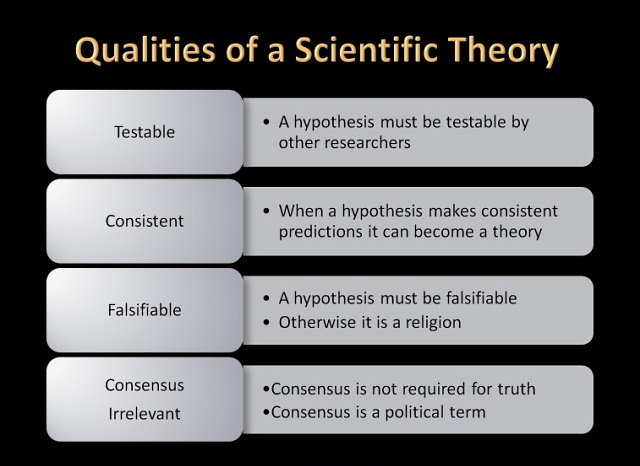Is homeopathy scientific?
What is the science of homeopathy?
Scientific theory is built from principles. Homeopathy is based on a single principle of nature which is called the "Similum". Translated from Latin it implies the discovery by a German doctor that the similarity between symptoms from tests and the symptoms to be healed in a sick person are similar. Here I will ask if this principle means that homeopathy is based on a scientific theory.
First, let me describe the "similum". This is the principle that homeopaths follow in order to select a single healing medicine out of thousands. This law predicts how sick people will react to a medicine based on the test record of that medicine when healthy people took it. Note, medicine is usually only tested on sick people or animals of non-humans. The principle instructs us how to identify a medicine that will heal specific symptoms that will lead to heal wider illness. The principle is, the discomforts of a sick person should be similar to the symptoms produced by a healthy person when they test that curative medicine.
The fundamental principle of homeopathy states that any medicine that can cause symptoms of illness can (only when prepared by a pharmacy for homeopathic medicines) can also cause similar symptoms in a healthy person. Rephrasing the same rule from the perspective of the patient, homeopathic medicines that cause minor symptoms for a healthy person, will also cure sick persons if the sick person shares some key symptoms that our databases of testing symptoms occurred when the healthy person took that medicine. That is, during tests, the healthy person will produce benign and temporary discomforts that can be found in the sick people that that medicine healed. Repeating this principle in simpler terms, if the healthy person feels some of the same discomforts that sick person feel, that medicine will heal the same symptoms in the sick person.
These tests results of healthy people are carefully recorded and currently tabulated in computerized databases. Besides this test data, homeopaths also rely on clinical data. Through careful observation of patients, we also can identify life-threatening and/or severely uncomfortable symptoms that are not found in tests. These clinical symptoms also identify the curative medications. That is, the test and clinical results are combined to discover that pattern of symptoms that our patient also produces.
What is scientific about this guiding principle?
Similar test symptoms can be used to identify medicines that will heal those symptoms in a patient. That same medicine will heal the patient who produces those similar symptoms. This is a principle. It is not a rule of thumb. It is applied rigorously to find the most healing medicine out of possible thousands of medicine. Principles are aspects of scientific theory. Does this mean that homeopathy is a scientific theory?

The above principle has been tested over 200 years in the clinic. In what sense is homeopathy based on a scientific theory? I will answer that question by comparing some typical characteristics of scientific theory. I believe that we are talking here about a principle that could be part of a scientific theory, but at this point, it is not part of a broad theory. Rather, it is a principle that guides homeopaths to select a curative medicine.
SOME CHARACTERISTICS OF SCIENTIFIC THEORY
1. Results can be reproduced
2. Results are independent of faith or belief.
3. Testing of scientific theory must reduce the influence of other factors influencing the results.
4. Principles generated by scientific theory should reliably predict results.
1. results can be reproduced
Homeopaths find that repeated tests on the same medicines produce the same results.
2. results are not based on faith
Let's consider a counter-argument such as faith causes the healing that homeopaths observe. Faith and religious conviction have also proved over the millennium to heal the mind and body. Yet, belief is not scientific. Homeopathic testing on the same medications producing the same results is scientific. Animals, babies, patients in a coma, and plants can be healed with the correct homeopathic medicine. So, the healing effect is not based on belief or faith. Many double-blind studies support this assertion.
3. testing must reduce unrelated variables
Some would argue that homeopathic testing is simplistic in comparison to laboratory testing or richly funded medical tests. In that sense, homeopathic testing is weak. But, the difference is homeopathic medicines are tested on healthy humans. Not rats or persons who already suffering from a disease are used for tests. Because homeopaths test only healthy humans, the variations that different species or illness produces are not present in homeopathic tests. Limitation of variation is the whole reason for testing in a laboratory or relying on statistical analysis. Without all the technology of laboratory test, homeopathic tests eliminate some important variables.
Qualitative testing in typical medicine is also practiced, but because pharmaceutical drugs damage the testee so only ill persons are willing to participate. Healthy humans are willing to test homeopathic remedies because they know that homeopathy does not undermine their health. If anything, their health will be improved.
4. scientific principles must predict results
The principle of homeopathy predicts which symptoms will be healed. Usually, symptoms that the patient has not reported are healed as well. A good homeopath will be able to give an approximate estimation of the time required for healing and the amount and type of discomfort that must be endured. This is possible because they are applying the above principle.
Homeopathic medicines usually must fit the symptoms of the individual. There are some apparent exceptions. Remedies such as Arnica seem to work for most any wound, at least in the short term.
Because Arnica is effective for most wounds, it is easy to test. Millions of people use Arnica for wounds in the way that they use aspirin for headaches. How aspirin actually works is not known, but it is commonly known that it does work. The same is true for Arnica.
However, not all tests of such remedies are correctly designed. For instance, Arnica was given before facelifts. The research findings were negative. The reason for this failure is Arnica must be given post-surgery and repeatedly. One dose before surgery will reduce bleeding, but dosing must continue. In this study, the dosing did not continue post-surgery. Repeated dosing is necessary because the Arnica is quickly used up after surgery. Of course, if the test does not correctly use the medicine, it will not produce reliable results. This is an example of why it is not easy to use to statistics to test homeopathic remedies. Other tests, where Arnica was correctly used, produce positive results.
There are a number of remedies that seem to work for anyone. Unfortunately, this is not true of most remedies. Arnica's wounds and the food poisoning that Arsenicum heals are relatively uniform, at least in the beginning when the body has not yet had time to adjust to the problem. Most medical problems require much more specific medications when treated with homeopathic medications.
Ordinary medicine is designed for mass production. Carefully choosing a medicine to fit the patient is not common. Also, more than one medication is used at a time. As a result, how exactly is each patient affected is not known. Also, multiple medications mean that diagnosis is complicated by guessing which medication is affecting the patient and in what way. Classical homeopathy is much more scientific in that sense. Limitation of variables is always important for homeopathic diagnosis.
A principle is not necessarily a scientific theory
Above I described a guiding practical principle that is the basis for selecting homeopathic remedies. By standards of laboratory or statistical testing, I believe that we cannot claim that homeopathy is a scientific theory. However, 200 years of practical experience suggest that the guiding principle of homeopathy is valid and reliable. Scientific testing of this principle and efforts to explain why it works continue, but at this point, no scientific theory can be claimed. But, we have plenty of reason to suspect that homeopathy could be based on scientific theory.
Consensus is not necessary
Homeopathy is opposed to the business interests of many companies. For that reason n, pharmaceutical companies invest millions of dollars to suppress homeopathy. This fact is not enough to discount the possible scientific validity of the homeopathic principle.

